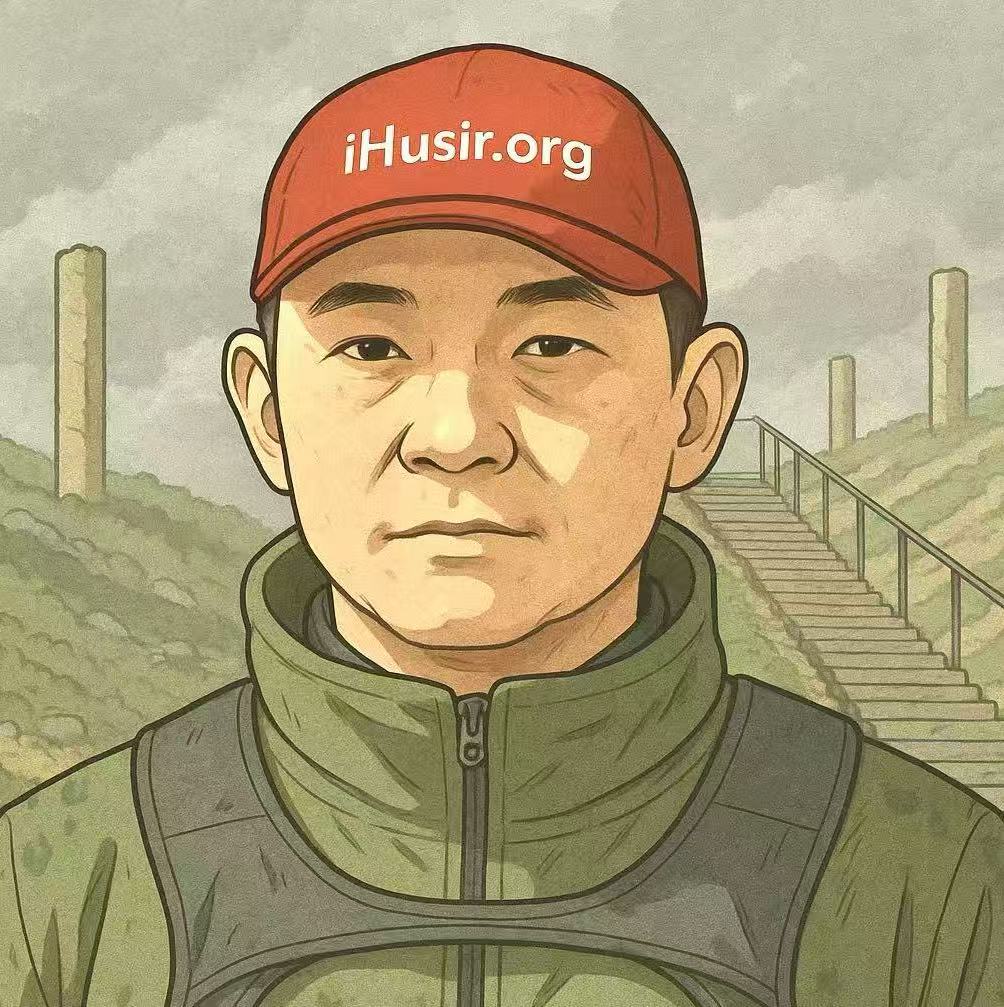——不言而杀的制度逻辑
文 / MingSir
“不是你撞的,你为什么要扶?”这句出自中国法官之口的判词,早已成为无数中国人从“助人”走向“自保”的心理分水岭。它不仅荒谬,更精准揭示了“无产阶级的一党统治者”体制对“善”的系统性扼杀机制。
“无产阶级的一党统治者”从不公开反对善良,它也绝不会在法律文本中否定“见义勇为”这种传统美德。相反,媒体仍在高调宣扬“正能量”,教科书依旧讲着雷锋故事。但人们早已在现实中学会了一个朴素的真理:在这个社会里,做好事,常常要付出代价;扶一个人,可能要赔一套房;说一句真话,可能丢掉饭碗。
为什么“无产阶级的一党统治者”不鼓励人们见义勇为,甚至在某些情况下暗中打压那些勇敢出手的人?根本原因在于:见义勇为不仅仅是一个道德行为,它更是一种不依赖权力、自发承担公共责任的正义觉醒。它不是“谁被救了”,而是意味着——“有人不听命令也敢作为”,这正是极权统治最忌惮的东西。
一个人扶起摔倒的老人,一个人在街头制止不公,一个人敢于发声质疑强权——这些行为本身可能是小事,但所代表的精神却是自由社会的核心价值:个体良知、道德勇气与责任担当。而“无产阶级的一党统治者”所需要的,是一个只听命、不出头、不质疑的“驯服型社会”。他们要的不是人人有担当,而是人人学会自保;不是一个道德社会,而是一个可控社会。

因此,“无产阶级的一党统治者”采用的不是直接镇压善行,而是更为高明的“寒蝉效应”策略。他们不立法禁止你出手,但他们也绝不主动保护你。如果你帮了人、被讹了,法院未必主持公道,警察可能推诿,媒体集体沉默。你不是被明文禁止行善,而是被现实劝退。时间久了,大家都懂了:“多一事不如少一事”、“不是自己家人别管”、“伸张正义只会惹祸上身”,而且这样的做法正在一代一代的传承了下去,孩子们从小便接受了这样的“训诫”和教导,以至于新一代的年轻人连他们的父母都不如,至少他们的父母还曾经受到过“承担责任”的教育和实践。
与此同时,“无产阶级的一党统治者”又通过强大的宣传系统制造出一种伪装的道德幻象。他们高调表彰“好人好事”,但这些人往往是“退伍军人”“基层党员”“干部子女”,这些“正能量典型”全都在权力轨道的控制之下。真正自发行动、不依附体制的“好人”,往往得不到任何肯定,反而被冷处理,甚至成为“维稳对象”。
在这种环境中,善良逐渐被污名化,“正义”成了麻烦的代名词。久而久之,“敢于见义勇为”的人被称作“傻”,“愿意说真话”的人被当作“刺头”,“坚持原则”的人被排斥为“异类”。社会的舆论风向也悄悄完成了转换:不出头、不表态、明哲保身,才是“成熟”的标志。这一切,不是文化堕落的偶然,而是制度性冷漠有意识的结果。
“无产阶级的一党统治者”并不真正关心正义是否发生,它更在乎是谁来主持正义。它不能容忍“权力之外的道德力量”存在。如果人人都相信“我也有责任”,那么“只有党才主持正义”的叙事神话就会崩塌。因此,它宁可让英雄坐牢、好人被冤,也不能让社会形成“公民责任感”的氛围。
这才是它暗中扼杀善良的真正逻辑:不是通过法律明令禁止,而是通过制度设定风险;不是鼓励你做坏人,而是劝你别做好人;不是打压你行善,而是让行善变得“不值得”。
一个真正的公民社会,是由无数个敢扶的普通人构成的。一个极权社会,则是用无数个选择沉默的“理智人”堆积而成的。
我们必须明白:“无产阶级的一党统治者”不是怕你帮了谁,它怕的是你让别人看到——正义不一定来自权力,也可以来自每一个有良知的普通人。
说了这一切,并不是为了鼓励人们冷漠沉默,更不是要让我们对自由和正义失去信心。恰恰相反,正因为我们看清了制度对善的扼杀,才更应该守住那颗火热的心——不做工具人,不当驯服者,继续做那个敢于扶起他人、敢于说真话、敢于拒绝沉沦的自由人。
请相信,这一切的荒谬都只是暂时的。多行不义者,终将自毙。我们要好好吃饭,安心睡觉,保持清醒和勇气,坦然面对每一个日常,然后等待——等待那个黎明真正到来的时刻。而那一刻,一定会到来。
Why Do “Proletarian One-Party Rulers” Secretly Suppress Goodness?
—The Systemic Logic of Silencing Without Speaking
By MingSir
“If you didn’t knock them down, why did you help them up?” This courtroom statement by a Chinese judge has become a turning point in the psyche of countless Chinese citizens—from lending a helping hand to withdrawing in self-preservation. As absurd as it sounds, it reveals with brutal clarity how the “proletarian one-party rulers” systematically crush acts of goodness.
These rulers never publicly oppose kindness. They would never dare to explicitly outlaw “righteous action” in legal texts. On the contrary, state media constantly promotes “positive energy,” and textbooks still recount stories of Lei Feng. But the people have long internalized a basic truth: in this society, doing good often comes at a cost. Helping someone up might cost you a house. Speaking an honest word might cost you your job.
So why don’t these rulers encourage people to act righteously—or worse, why do they sometimes secretly punish those who do? The fundamental reason is that acts of righteousness are not merely moral gestures; they are awakenings of justice that occur outside of state control. They signal that someone dares to act—not by command, but by conscience. And that is what authoritarian regimes fear most.
One person helps up a fallen elder. Another steps in to stop injustice on the street. Someone dares to speak out against power. These may seem like small acts, but the spirit behind them embodies the core values of a free society: individual conscience, moral courage, and the willingness to take responsibility. Yet what the one-party rulers desire is a docile society—one that obeys, stays silent, and avoids questioning. They want not a moral society, but a manageable one. Not people with a sense of duty, but people trained in self-preservation.

That’s why their methods are subtle and sophisticated. They don’t openly ban good deeds. They simply refuse to protect those who do them. If you help someone and get falsely accused, the courts might remain silent, the police might pass the buck, and the media will look away. You are not forbidden from doing good—but reality discourages you. Over time, people learn: “Better to stay out of it.” “If it’s not my family, it’s not my problem.” “Standing up for justice will only bring trouble.”
Worse yet, this logic gets passed down through generations. Children are taught from a young age not to get involved. The new generation is often less morally courageous than their parents—who, at the very least, were once taught to take responsibility.
At the same time, the regime uses its powerful propaganda apparatus to manufacture a false moral narrative. They publicly praise “good deeds”—but the heroes are often retired soldiers, grassroots Party members, or children of cadres. These “positive examples” are all within the Party’s control. Truly spontaneous, independent acts of goodness go unrecognized—or worse, become targets of surveillance and “stability maintenance.”
In such an environment, kindness becomes stigmatized. Justice becomes synonymous with trouble. Those who dare to act righteously are called “fools.” Those who tell the truth are branded “troublemakers.” Those who stick to their principles are isolated as “outcasts.” And slowly, public discourse shifts. Silence becomes wisdom. Cowardice becomes maturity. What we see is not accidental cultural decline, but the deliberate engineering of institutional indifference.
These rulers don’t actually care whether justice happens—they only care who delivers it. They cannot tolerate any moral authority that lies outside their control. Because if everyone starts believing “I, too, am responsible,” then the myth that “only the Party can dispense justice” begins to collapse. That’s why they would rather imprison heroes, allow good people to be falsely accused, than let a sense of civic duty take root in society.
This is the true logic behind their silent suppression of goodness: They don’t outlaw good deeds—they make them risky. They don’t encourage evil—they discourage good. They don’t crush kindness—they make it seem not worth it.
A true civic society is built from countless individuals willing to help a stranger. An authoritarian society is built from countless “rational” people who choose silence.
We must recognize: these rulers don’t fear who you help—they fear that others might see you help and realize this truth:Justice does not have to come from power. It can come from every conscience.
And if I say all this, it’s not to encourage people to remain cold and silent. It’s not to make us give up on justice or freedom. On the contrary, it’s because we have clearly seen how the system stifles goodness that we must hold tighter to our burning hearts. Let us not become tools, nor docile subjects—but remain the ones who dare to help, dare to speak, dare to resist sinking into numbness.
Believe this: all this absurdity is only temporary. Those who do evil endlessly will, in the end, destroy themselves. So let us eat well, sleep soundly, stay awake in spirit, and face each ordinary day with calm resolve— And wait. Wait for the moment when the dawn finally arrives.And that moment will come.
请填写您的邮箱,免费订阅作者最新文章。

发表回复